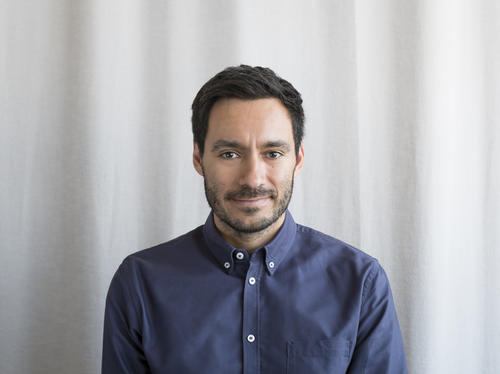Tracking voter behaviour
Einstein BUA/Oxford Visiting Fellow Tarik Abou-Chadi talks about his research on voter behavior in a changing European political landscape
Mar 27, 2024
An important component of the scientific cooperation between the Berlin University Alliance and the University of Oxford are the Einstein BUA/Oxford Visiting Fellowships. They are awarded to outstanding researchers like the political scientist Tarik Abou-Chadi. He researches voter behaviour in a changing political landscape in Europe.
European politics have changed fundamentally in the last 30 years. New topics like climate change, immigration and gender equality have moved onto the agenda and dominate it. New parties have arisen – both on the right and the left of the spectrum. And in the course of this, government coalitions are forged that demand compromises from the parties involved and sometimes shift away from their traditional objectives.
Are the parties thereby also moving away from their electoral base? The political scientist Tarik Abou-Chadi has been preoccupied by this change for years, both as someone interested in politics and as a scientist. Abou-Chadi is a professor at the University of Oxford and has also been an Einstein BUA/Oxford Visiting Fellow in Berlin since summer 2023.
His fellowship at BUA is funded as part of the Oxford-Berlin science partnership by the Einstein Foundation. As part of this, Abou-Chadi set up a small research group with a postdoc and a doctoral student at the Humboldt-Universität (HU) for his project “Electoral trade-offs in progressive politics”. His academic host and partner on the Berlin side is the political scientist Heike Klüver, professor at the HU. Klüver’s specialist field is “A comparison of political behaviour”.
Diverse electoral base
Today, it is no longer so easy to predict whoch clientele ticks which box on the ballot paper.
Image Credit: Mika Baumeister/Unsplash
“Which groups can address social democratic, green, radically left-wing and other parties with different programmatic profiles?” Abou-Chadi names a question of the project. For while it still seemed relatively simple to predict which population groups or social strata would vote for which parties a few decades ago, the parties’ “clientele” is now more diverse and no longer anywhere near as easy to determine as previously.
This is evident from looking at the situation on our own doorstep, here in Germany: those who vote for the Greens can no longer automatically be categorised as clearly centre-left. And CDU voters are also committed to environmental protection and sustainability.
The previous, classic core electoral base of the SPD, on the other hand – the workers, the so-called “little people” – has melted away. Those who belong to this stratum today have long since ceased to remain loyal to the party in every election and now also sympathise with parties on the right, in many cases out of frustration with the political establishment. A similar trend can be observed in other European countries such as France or Italy.
Abou-Chadi, who completed his bachelor’s and master’s degree studies and doctoral studies at Humboldt-Universität, and who has the best network there, has been Associate Professor in the fields of the European Union and Comparative European Politics at Nuffield College in Oxford since 2021. The college specialises in the social sciences, and Abou-Chadi primarily teaches master’s degree students there. “Nuffield is a stroke of luck for me, because Oxford colleges are not usually specialised in particular subject groups to such an extent, but are rather generally oriented,” the 38-year-old says.
Over a time period of three years, the political scientist will now supervise his Berlin Einstein working group from Oxford. He will also meet his team at regular intervals in Berlin.
The rise of the right and the election crisis of the social democrats
The focus of the investigation is on voter mobility between the parties
Image Credit: Claudio Schwarz/Unsplash
As an internationally renowned expert in the field of political parties and voting behaviour, his research focuses on the change in party politics in Western Europe. In numerous studies and articles, he has concentrated on the rise of the radical right and the Green parties, as well as the election crisis of social democracy. Abou-Chadi is currently writing a book about social democratic parties.
A highly topical question of the Einstein research project is: how can established parties succeed in winning over voters or, to ask the question another way: how can they prevent disappointed voters giving their vote to right-wing extremist parties because the established parties no longer seem to represent their interests sufficiently?
“We are investigating how the programmatic appeals of the parties in this environment influence support through various groups. A central idea for understanding these diverse support patterns is the concept of a trade-off,” Abou-Chadi explains. “Put simply, if a party appeals to a group of voters, it can alienate a different group because it is prepared to negotiate on political content in one direction or the other.”
“I do not conduct political consulting”
In a multi-topic and multi-party space, in which the parties forge new electoral alliances, the concept of a trade-off has become a fixed component. To date, this has not been researched much, Abou-Chadi says. The research project intends to close this gap.
“With this, and also with my other projects, I conduct basic research and not political consulting, of course,” the political scientist emphasises. “My specialist colleagues and I want to make medium-term developments explainable.”
He gives an example: “On the basis of research results from recent years, it can be said that a shift towards a more restrictive migration policy would not help the social democrats to win more votes.” As a researcher, the scientist says that he can only argue against this narrative again and again. “The parties must, however, draw the conclusions for their political action themselves.”
Further Information
Einstein BUA/Oxford Visiting Fellowships
With the “Einstein BUA/Oxford Visiting Fellow” programme, top scientists and outstanding young researchers with an established research position at the University of Oxford are integrated into the Berlin research and scientific landscape for the longer term. The aim: to strengthen the Oxford-Berlin scientific cooperation. The funding of 500,000 euros each, which will finance a research team in Berlin, will run for three years.
Other Fellows and their projects are:
“The Global Literary History of the Seven Sages of Rome”
Host: Prof. Dr. Jutta Eming, Institute of German and Dutch Languages and Literatures, Freie Universität Berlin, Visiting Fellow: Dr. Ida Toth, Wolfson College, Oxford
“The Boundaries of Cosmopolis: Berlin and London”
Host: Prof. Dr. Gesa Stedman, Centre for British Studies, Humboldt-Universität, Visiting Fellow: Prof. Stefano Evangelista, Trinity College, Oxford
“AfterWords”
Host: Prof. Dr. Jutta Müller-Tamm, Freie Universität / EXC 2020 “Temporal Communities: Doing Literature in a Global Perspective” / Friedrich Schlegel Graduate School of Literary Studies, Visiting Fellow: Prof. Karen Leeder, New College, Oxford
“Glucose metabolism: a new target for stroke and vascular dementia prevention”
Host: Prof. Dr. med. Andreas Meisel, Director of the Center for Stroke Research Berlin (CSB), Charité, PD Dr. med. Philipp Mergenthaler, Einstein Junior Fellow, CSB, Charité, Visiting Fellow: Prof. Peter M. Rothwell, Nuffield Department of Clinical Neurosciences, Oxford
“A transitional platform for understanding and utilising neuronal dynamics to improve treatment for movement disorders”
Host: Prof. Dr. Andrea Kühn, Department of Neurology with Experimental Neurology, Visiting Fellow: Prof. Andrew Sharrot, MRC Brain Network Dynamics Unit, Oxford



